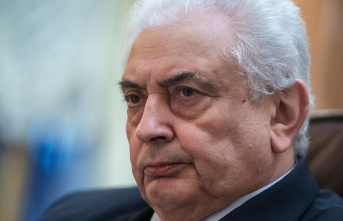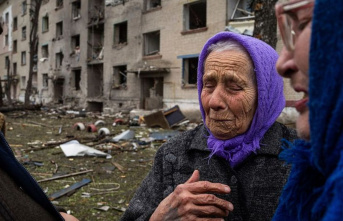Now the "class struggle" is erupting in Britain. Thousands of teachers in England and Wales have voted for strikes, and many classrooms are likely to remain empty in the near future - "Class War", was the ambiguous headline in the Sun newspaper. In fact, society is more divided than it has been for a long time: here the conservative government, there the trade unions and the left-liberal opposition. Prime Minister Rishi Sunak's latest move is likely to widen the gap.
The head of government wants to use all his might to prevent the country from coming to a standstill, as it has repeatedly done in recent months. No trains, no ambulances, no mail, no border guards. The nurses of the ailing NHS health service are on strike again this Wednesday. The teachers then want to get started in two weeks. United Kingdom instead of United Kingdom.
The government wants this to end. That's why Sunak wants to extensively restrict the right to strike in vital sectors such as health, fire brigades and education. The draft by Economics Secretary Grant Shapps is intended to force unions to ensure basic services, for example for rescue and security forces or the railways. In short: employees in some sectors should be prevented from going on strike. Otherwise there is a risk of dismissal.
demonstration of strength
The government is pushing its project through parliament at high speed. The draft has already taken its second reading in the House of Commons. Observers comment that Sunak, following the example of ex-Prime Minister Margaret Thatcher, wants to demonstrate strength in the class struggle and thus unite his enormously divided Tory faction. For the Conservatives, the culprits are clear: union bosses who raked in high salaries and funded the Labor Party. They are "robots that always say no," according to historian Tim Stanley in the Telegraph newspaper.
But the fact that the government is demonstrating its strength will not help it, columnist Martin Kettle said in the Guardian. His verdict: "The Tories' anti-strike law will only lead to more unrest in the economy."
In fact, the outrage is enormous. Labor leader Keir Starmer said the government has shifted from sacking nurses to applauding, citing public applause for NHS workers during the coronavirus pandemic. The head of the union federation TUC, Paul Nowak, grumbled: "This draconian legislation is undemocratic, unworkable and almost certainly illegal."
Accusation: The law undermines democracy
The accusation: Instead of looking for a compromise and making jobs future-proof, the Tories preferred to keep filling the coffers of the companies. "At the end of the day, unions work and that's why the Tories are going against them," said Mhairi Black of the Scottish National Party. "The truth is that this law is designed to undermine and attack workers' rights and democracy."
Historically, the British have actually been critical of strikes. But the mood is changing: millions are being hit by skyrocketing energy and food prices. Inflation was recently more than 10 percent, but real wages have fallen more than they have in a long time. Many feel this in their wallets - and therefore show understanding for the displeasure of nurses, train drivers, teachers or postmen.
The "cost of living crisis" is the biggest concern - and also one reason why the Conservatives, who have been governing for almost 13 years, are doing so miserably in the polls. A Labor victory in the general election planned for 2024 is on the horizon. This creates a political vacuum. "The strikes come at a time when the old regime is dying but another has not yet taken its place," said Guardian columnist Nesrine Malik. An end to the strikes is not in sight: Resident doctors have announced a walkout for March.











